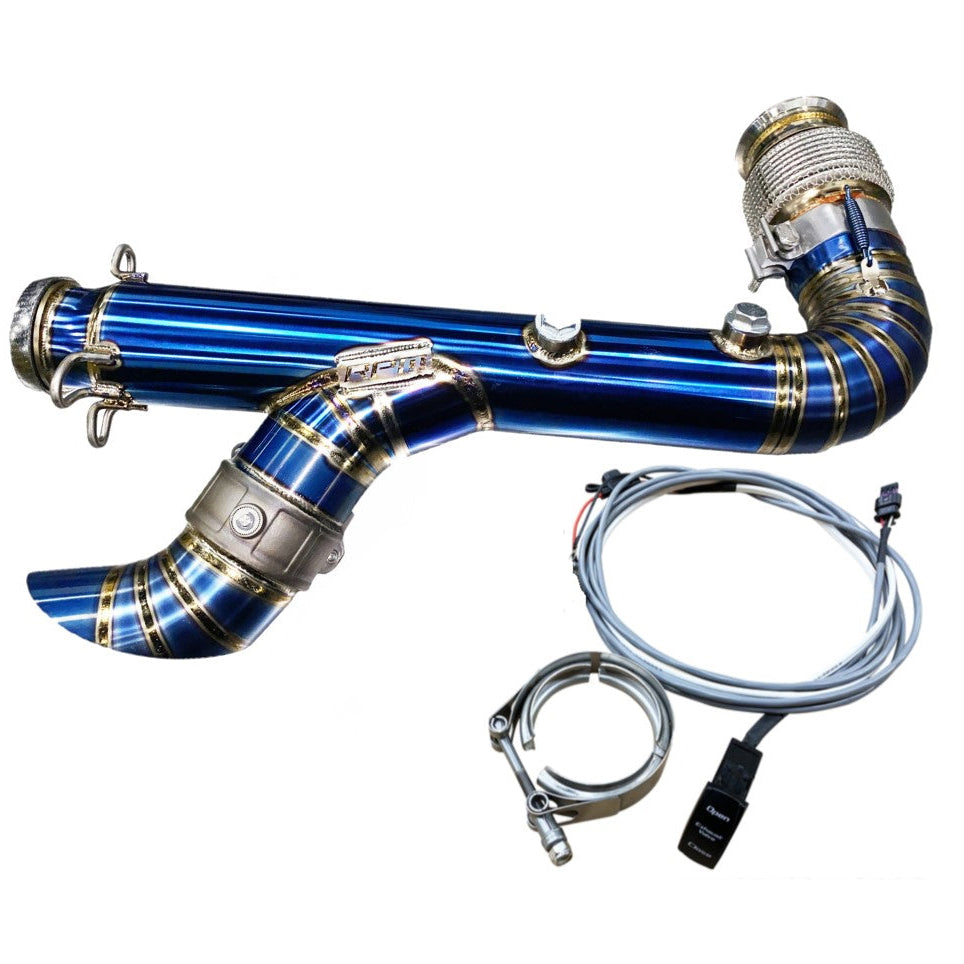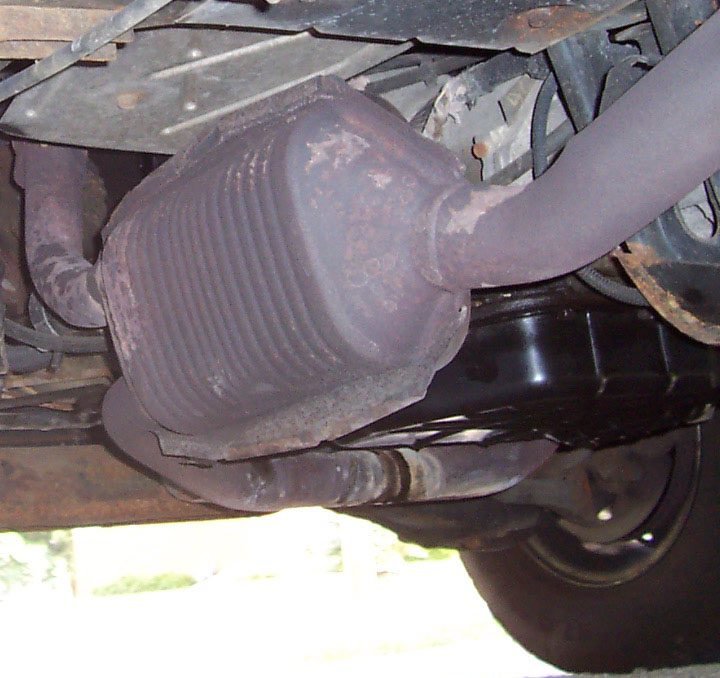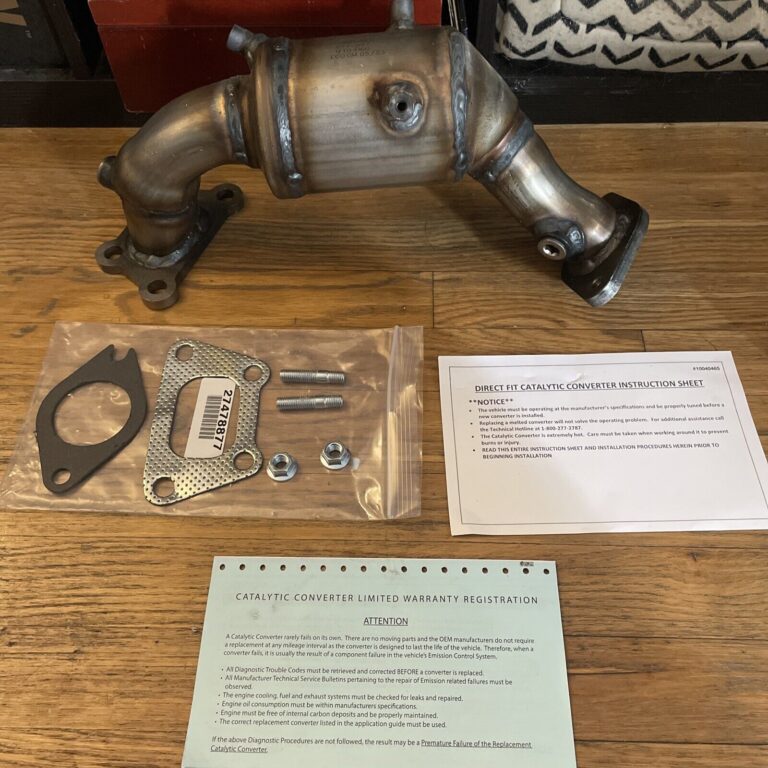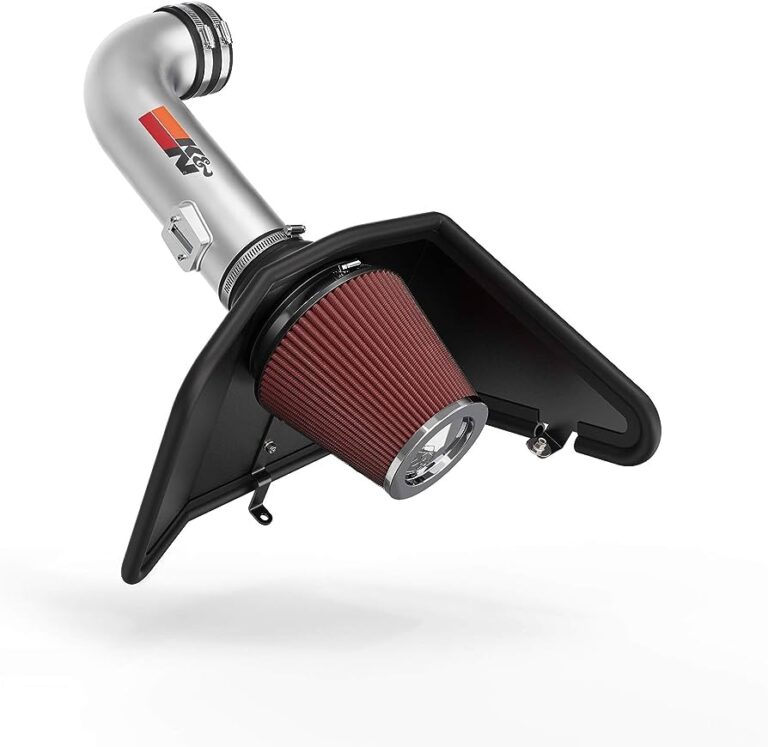Can You Straight Pipe a Diesel? Unleash the Monster within!
Yes, it is possible to straight pipe a diesel vehicle, which involves removing the muffler and exhaust system for increased performance and a louder sound. When it comes to modifying vehicles for enhanced performance and sound, enthusiasts often wonder if it’s feasible to straight pipe a diesel engine.
Straight piping refers to removing the muffler and exhaust system, allowing a more direct flow of exhaust gases. This modification can result in increased horsepower and torque, as well as a deeper and louder exhaust note. While straight piping a gasoline-powered car may not have drastic effects, it can significantly impact a diesel engine due to their unique characteristics.
We will delve into the concept of straight piping a diesel, exploring the benefits, considerations, and potential consequences associated with this modification.
What Is Straight Piping?
What is Straight Piping?
Straight piping refers to a modification made to a diesel engine’s exhaust system where the muffler and catalytic converter are removed, allowing the exhaust gases to flow directly from the engine to the atmosphere. This modification can alter the sound and performance of the diesel engine.
Benefits and drawbacks of straight piping:
| Benefits | Drawbacks |
|---|---|
|
|
|
|
|
|
|
|
The Ins And Outs Of Diesel Engines
Exhaust systems play a crucial role in the overall function and performance of diesel engines. Unlike gasoline engines, diesel engines operate at higher temperatures and require a different approach to managing exhaust gases. The primary purpose of the exhaust system in a diesel engine is to safely channel and remove the combustion byproducts from the engine, while also reducing noise emissions.
The exhaust system in a diesel engine is typically more complex than that of a gasoline engine. It consists of several components, including the exhaust manifold, diesel particulate filter (DPF), catalytic converter, and muffler. Each of these components plays a specific role in the emission control and noise reduction process.
The exhaust manifold connects the engine cylinders to the rest of the exhaust system and channels the exhaust gases away from the engine. The DPF helps trap and remove particulate matter, such as soot, from the exhaust gases. The catalytic converter aids in reducing harmful emissions, such as nitrogen oxides, carbon monoxide, and hydrocarbons. Finally, the muffler helps to minimize exhaust noise.
Overall, the exhaust system in a diesel engine is a vital component that ensures the engine operates efficiently and meets emissions regulations. Proper maintenance and understanding of its function are essential for the longevity and performance of diesel engines.
Can You Straight Pipe A Diesel?
Exploring the feasibility of straight piping a diesel engine, it is important to consider several factors before making a decision. First and foremost, it is necessary to understand the legal implications and regulations surrounding straight piping. While it may seem tempting to remove the exhaust restrictions, it is crucial to ensure compliance with local and federal laws to avoid penalties and potential vehicle damage.
Another important factor to consider is the impact on engine performance and longevity. Straight piping may provide a louder and more aggressive sound, but it can also lead to decreased backpressure and potential damage to the engine. Adhering to manufacturer recommendations and consulting with automotive professionals can provide valuable insight into the potential risks and benefits.
Furthermore, it is essential to consider the environmental impact of straight piping a diesel engine. Diesel engines are already known for their emissions, and removing exhaust restrictions can exacerbate the problem. Respecting the environment and minimizing pollution should be a top priority when making modifications to a diesel engine.
| Factors to consider | Legal implications and regulations |
|---|---|
| Engine performance and longevity | Compliance with local and federal laws |
| Environmental impact | Potential penalties and vehicle damage |
Therefore, before straight piping a diesel engine, thorough research and consideration of these factors is vital. It is recommended to consult with experts and understand the potential consequences before making any modifications to ensure both legal compliance and engine health.

Credit: www.warrantykillerperformance.com
Pros And Cons Of Straight Piping A Diesel
Can You Straight Pipe a DieselWhen considering straight piping a diesel engine, it is important to weigh the pros and cons. Straight piping involves removing the diesel particulate filter (DPF) and muffler, allowing for better exhaust flow and increased horsepower and torque. This modification can also give your vehicle a deeper and more aggressive exhaust sound. However, there are a few drawbacks to consider. First, straight piping a diesel engine may result in a potential loss of warranty, as it is often considered a modification. Additionally, removing the DPF can lead to increased noise pollution, which may not be ideal for everyone. It’s important to carefully consider the benefits and drawbacks before deciding to straight pipe a diesel engine.
Straight Pipe Vs. Muffler Delete: Which Is Better?
When it comes to modifying the exhaust system of a diesel vehicle, two popular options are straight piping and muffler delete. Both of these modifications aim to enhance the sound and performance of the vehicle.
Straight piping involves removing the entire exhaust system, including the muffler, and replacing it with a straight pipe. This results in a louder and more aggressive exhaust note. On the other hand, a muffler delete simply removes the muffler while keeping the rest of the stock exhaust system intact.
In terms of sound, straight piping typically produces a louder and more pronounced sound compared to a muffler delete. This is because the elimination of the muffler allows for a freer flow of exhaust gases. However, it’s important to note that straight piping can lead to a significant increase in noise levels, which may not be legal in some areas.
When it comes to performance, both modifications can provide some benefits. By removing the muffler or installing a straight pipe, the exhaust flow is improved, resulting in reduced back pressure. This can lead to a slight increase in horsepower and torque.
In conclusion, both straight piping and muffler delete modifications have their pros and cons. Before proceeding with either option, it’s essential to consider the local regulations regarding noise and emissions. Additionally, it’s advisable to consult with an experienced mechanic or exhaust specialist to determine the best option for your specific needs and preferences.
Choosing The Right Straight Pipe For Your Diesel
Choosing the Right Straight Pipe for Your Diesel
When it comes to selecting a straight pipe for your diesel, there are several factors to consider. One of the most important considerations is the material of the pipe. It should be made of high-quality stainless steel to ensure durability and resistance to corrosion. The size of the pipe also matters. It should be compatible with the diameter of your diesel engine’s exhaust system for proper fitment.
Another factor to think about is the quality of the straight pipe. It should be designed specifically for diesel engines and have a smooth inner surface to allow for maximum exhaust flow. This will help improve your engine’s performance and enhance the overall driving experience.
Compatibility with your diesel engine model is crucial as well. Different models may have specific requirements, so it’s essential to choose a straight pipe that is designed for your particular engine to ensure proper installation and optimal performance.
Diy Straight Piping Vs. Professional Installation
htmlWeighing The Options: Do-it-yourself Or Professional Installation?
Avid automobile enthusiasts often debate between DIY straight piping and seeking professional help when it comes to enhancing the performance of their diesel vehicles. While both approaches have their own merits, it is important to consider the possible challenges and risks associated with each option.
DIY Straight Piping:
- Requires intermediate to advanced mechanical skills and knowledge of exhaust systems.
- May void manufacturer’s warranty and insurance coverage.
- Inadequate installation could lead to leaks, excessive noise, or even engine damage.
- Cost-effective for those with experience and access to necessary tools.
Professional Installation:
- Expert mechanics possess the necessary expertise to ensure proper installation.
- Complies with legal requirements and emissions standards.
- Minimizes the risk of damage to the vehicle.
- Provides peace of mind through warranty on workmanship.
Ultimately, the decision between DIY straight piping and seeking professional help should be based on the individual’s skill level, access to resources, and willingness to undertake the associated risks. For those without the necessary experience or hesitation about potential complications, professional installation is undoubtedly the safer and more reliable choice.
Tips And Precautions For Straight Piping A Diesel
When considering straight piping a diesel engine, there are several important tips and precautions to keep in mind. Firstly, it is essential to understand the potential impact on the vehicle’s performance and emissions. Straight piping can result in increased exhaust noise and emissions, which may not comply with local regulations. It is crucial to research and follow the specific guidelines in your area.
Another aspect to consider is the effect on the engine itself. Straight piping can alter the backpressure, which may lead to reduced torque and power output. Additionally, it is important to regularly inspect the exhaust system for leaks and damage, as straight piping can increase the strain on the components. Checking for any loose connections or cracks will help maintain the overall performance and longevity of the engine.
After straight piping your diesel engine, proper maintenance and care become even more important. Regularly cleaning the exhaust system and ensuring that the pipes are properly aligned and secured are crucial steps. It is also recommended to keep an eye on the exhaust gas temperature to prevent any potential overheating issues. Lastly, staying up-to-date with any local or state regulations regarding emissions is necessary to ensure compliance.
Frequently Asked Questions For Can You Straight Pipe A Diesel
Does Straight Piping A Diesel Make It Louder?
Yes, straight piping a diesel can make it louder. Straight piping removes the restrictions in the exhaust system, allowing for increased airflow and louder exhaust noise. Keep in mind that modifying the exhaust system may affect your vehicle’s performance and compliance with emissions standards.
Does Straight Piping A Diesel Increase Hp?
Straight piping a diesel can potentially increase the horsepower. By removing the restrictive mufflers and other exhaust components, the exhaust flow improves, leading to better engine performance. However, it may also result in increased noise and emissions, so it’s important to consider local laws and regulations.
Is It Ok To Straight Pipe A Truck?
Straight piping a truck can have both benefits and drawbacks. On the positive side, it can increase horsepower and give the truck a louder exhaust sound. However, it can also lead to increased emissions, legal issues, and potential engine damage.
It is important to check local regulations and consider the potential consequences before making this modification.
Can Diesel Come Out Of Exhaust?
Yes, diesel can come out of the exhaust.
Conclusion
Straight piping a diesel can provide some benefits such as increased horsepower and fuel efficiency. However, it is important to consider the potential downsides, such as increased noise levels, emissions, and the risk of violating local laws and regulations. Before making any modifications to your diesel vehicle, always consult with a professional to ensure you adhere to legal and safety requirements.
Preserve your diesel’s longevity and performance by striking a balance between modifications and practicality.







